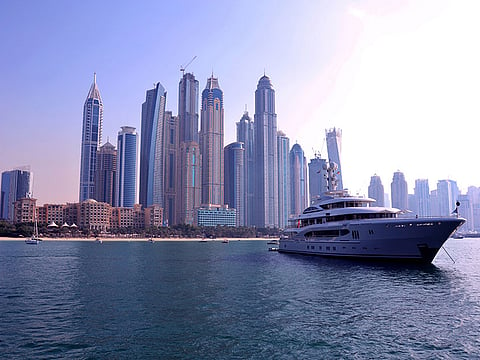Diversification, reforms enhance investment appeal of GCC nations
Gulf Cooperation Council moves turning region into a magnet for growth investors

Dubai: The Gulf Cooperation Council (GCC) countries—comprising Saudi Arabia, the UAE, Qatar, Kuwait, Bahrain, and Oman—are undergoing significant economic transformations aimed at reducing reliance on oil revenues and attracting diversified investments.
Franklin Templeton Emerging Markets Equity's latest investment outlook highlights four primary drivers of medium-term growth in the GCC:
· Rising Consumption and Tourism: Government initiatives are boosting tourism, with Saudi Arabia targeting 150 million tourists by 2030 and the UAE aiming for 40 million hotel guests by 2031. This surge is expected to stimulate consumer spending across various sectors.
· Energy Sector Expansion: The region is investing in both renewable energy and liquefied natural gas (LNG) production. Qatar's North Field expansion aims to double LNG output by 2030, while the UAE's renewable energy projects, like the Mohammed Bin Rashid Al Maktoum Solar Park, contribute to a greener energy mix.
· Infrastructure Development: Massive infrastructure projects are underway, including Saudi Arabia's $1 trillion commitment to developments like Neom and the expansion of King Salman International Airport. The UAE is enhancing its transportation network with projects like the Etihad Rail.
· Market Reforms: Reforms aimed at increasing foreign equity participation and deepening capital markets have led to the inclusion of GCC countries in the MSCI Emerging Market Index. This has attracted significant foreign investment, with equity inflows doubling to $60 billion by the end of 2024 compared to 2022.
These developments are complemented by declining equity risk premiums in the GCC, which have decreased from 6.6% in 2016 to 2.4% in March 2025, indicating reduced perceived investment risk.
Furthermore, the GCC's focus on sustainability and technological innovation is positioning the region as a hub for green energy and digital transformation. Investments in renewable energy are projected to rise from $1.2 trillion in 2024 to $2.4 trillion by 2030, with sovereign wealth funds playing a pivotal role in this transition.
In summary, the GCC's strategic economic reforms, infrastructure investments, and commitment to diversification are creating a conducive environment for investors seeking growth opportunities in emerging markets.
Sign up for the Daily Briefing
Get the latest news and updates straight to your inbox


